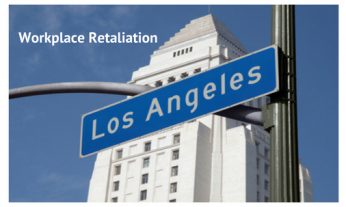 Do you feel that not getting promotions at work is because of workplace retaliation? Suppose you are a high-ranking individual with your company and a heavy decision looms before you and your management team. You hold many discussions, and ultimately, you disagree with the direction chosen by your immediate supervisor and the rest of the team. Fair enough. The majority rules, and what is done is done. Or is it?
Do you feel that not getting promotions at work is because of workplace retaliation? Suppose you are a high-ranking individual with your company and a heavy decision looms before you and your management team. You hold many discussions, and ultimately, you disagree with the direction chosen by your immediate supervisor and the rest of the team. Fair enough. The majority rules, and what is done is done. Or is it?
Fast-forward a few years. Your management peers have moved up in the company, leaving you behind. You cannot prove it, but you have the sinking feeling that your career stagnation is a direct result of your stance in that meeting back in the day. In retribution for speaking your mind, you have been sidelined.
Alleged Workplace Retaliation – LAPD Captain Whittingham
Your situation may not be unlike that of LAPD Police Captain Peter Whittingham. The once-successful captain on an upward trajectory found five years with no promotions unsettling, to say the least. In 2014, Whittingham filed a lawsuit against the LAPD alleging workplace retaliation and discrimination. The courts now must weigh the evidence and determine the legitimacy of Whittingham’s workplace retaliation claim.
What Constitutes Unlawful Workplace Retaliation?
Workplace Retaliation may mean promotions passing you by. But that is only one of many ways in which employers may unlawfully express their dissatisfaction with you. Other common examples include:
- Demotion, suspension, refusal to hire, reduction in hours;
- Threats, unjustified negative evaluations, unjustified surveillance;
- Any other action designed to deter individuals from pursuing their rights.
Legal Response to Workplace Retaliation
The US Equal Employment Opportunity Commission (EEOC) is tasked with holding employers accountable when they retaliate against employees. Whether the retaliation is in response to an employee complaint of some kind, or, as in Whittingham’s case, a response to differing management tactics, it is unlawful and subject to legal remedy.
Additionally, the California Division of Labor Standards Enforcement (DLSE) allows employees, as well as applicants for employment, to file to file a complaint when they believe they have experienced retaliation for lawful activities. Your employer cannot legally punish you for sharing information with the DLSE. It is a protected activity, and employers may not discipline employees for answering questions or filing complaints with government agencies.
Proving Workplace Retaliation Causation
Proving that your employer took action against you as retaliation is held to the “but-for-causation” standard. This means that you are responsible for drawing a clear line between the protected activity and the employer response. Your employer will doubtlessly contend otherwise; it is up to you to undermine your employer’s rationale for unlawful actions.
Discriminatory and/or retaliatory practices based on your lawful behavior should never be tolerated. Having an experienced attorney from Beck Law P.C. by your side will ensure you get the representation you deserve. Contact our office for your confidential consultation.
BECK LAW P.C. – SANTA ROSA – PETALUMA – UKIAH – LAKE COUNTY
